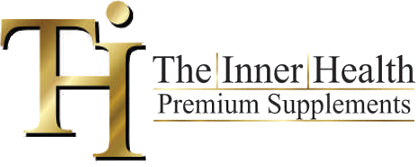Fish are generally known for their health benefits. But are all fish equally healthy? Are they advisable for everyone, including pregnant women and children? How concerning is the mercury content in some fish? Over the years, many myths have surrounded the fish plate. While many fish types are a valuable source of protein and omega-3 fatty acids, there are those better avoided, especially in the diet of pregnant women. Let's explore which fish species to choose and which to avoid.
Fish: Omega-3 vs. Mercury
Seafood, including fish and shellfish, is an excellent source of protein, iron, and zinc. Omega-3 fatty acids, such as docosahexaenoic acid (DHA), found in many fish, are crucial for the developing nervous system of the fetus. Doctors recommend consuming fish at least twice a week to support health. So, where do the controversies around eating fish during pregnancy come from?
Certain types of seafood can contain mercury, sometimes in high concentrations. The flesh of large, predatory fish, like sharks, swordfish, king mackerel, and tilefish, contains the most mercury. While some of these fish species might sound exotic, they're not the only ones containing mercury. White tuna meat also has mercury, with the lowest content found in bonito tuna.
Although the mercury in seafood isn't a problem for most adults, special precautions should be taken if you're pregnant or planning to become pregnant. Regular consumption of fish with high mercury content can accumulate in your bloodstream over time. This can lead to damage to the developing nervous system of the fetus. For the same reason, fish that may contain mercury should not be part of children's diets. Avoid cheap fish from Asian industrial farms, too. Stay clear of pangasius, which is farmed in cages on artificial feed. Its meat doesn't contain mercury but does contain artificial hormones and antibiotics. Additionally, it usually comes to us frozen; it's much wiser to opt for fresh fish.
Which Fish and Seafood Can Be Safely Eaten During Pregnancy?
Many fish and seafood species do not exhibit high mercury content but are rich in valuable nutrients. Fish and seafood with low mercury content and rich in omega-3 fatty acids include:
- Anchovies
- Herring
- Sardines
- Freshwater trout
- Cod
- Salmon
- Catfish
- Pollock
- Tilapia
- Shrimp
- Carp
- Flounder
- Squid
- Lobster
- Pacific mackerel
Global health organizations recommend that pregnant women consume low-mercury fish twice a week. If you want to eat seafood, remember to keep the portions no more than 100 grams. Pay attention to what types of fish you choose and how you prepare them - it also matters.
Tips for Pregnant Women on Buying and Preparing Seafood:
- Avoid large predatory fish.
- Don't buy fish from Asian industrial farms.
- Don't consume any raw fish or seafood (sushi isn't advisable when you're pregnant).
- Cook seafood at high temperatures.
- Ensure proper thermal processing - fish is ready when it flakes and turns milky white; cook shrimp and lobsters until the flesh is pearly and milky white. Clams and oysters are ready to eat when their shells open - discard any that don't open.
Why Eat Fish During Pregnancy?
Fish is a prime source of lean protein and its essential amino acids, which help in forming all your child's cells - from skin and muscles to hair and bones. Omega-3 acids in fish not only support the child's body but also the mother's.
Pregnancy brain fog and memory issues might be a common joke, but they can significantly complicate a woman's life. Consuming omega-3 acids can protect you from this and reduce the risk of postpartum depression.
A pregnant woman's diet containing fish can reduce the risk of heart disease by decreasing blood clotting and triglyceride levels (fat in the blood) and lowering blood pressure if you have hypertension. This way, it reduces the risk of premature birth.
Don't Like Fish and Seafood? Get Omega-3 Another Way
Fish aren't the only rich source of Omega-3 fatty acids. You can also find them in:
- Chia seeds
- Flaxseed oil and flaxseeds
- Sunflower seeds, walnuts
- Evening primrose oil
- Marine algae
- Omega-3 fortified dairy
A pregnant woman's daily requirement for omega-3 acids is 400 - 600 mg. Therefore, if your daily diet doesn't contain enough fish or products from the list above, consider supplementation. Most expectant mothers take vitamin supplements with folic acid; look for ones that also contain DHA. Take special care in the third trimester of pregnancy when your baby's brain is developing very intensely.

